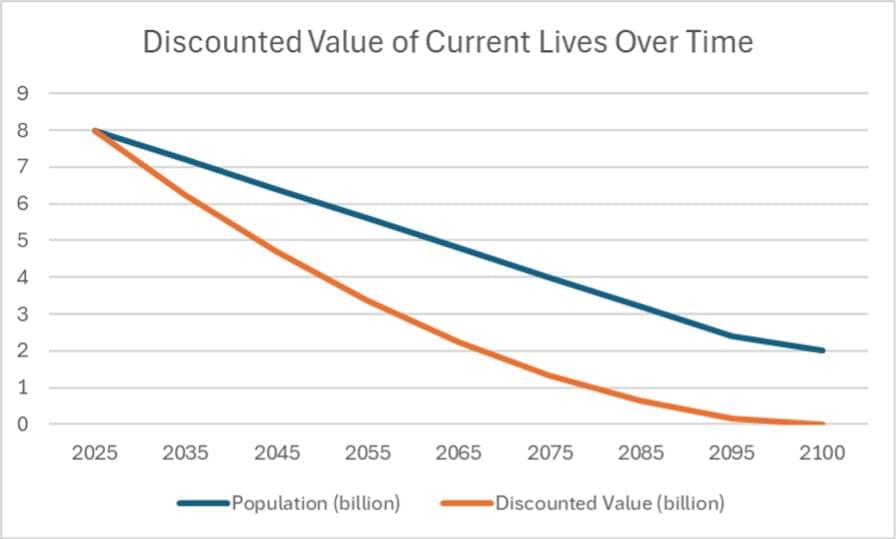From the article:
Longtermism asks fundamental questions and promotes the kind of consequentialism that should guide public policy.
Based on a talk delivered at the conference on Existential Threats and Other Disasters: How Should We Address Them? May 30–31, 2024 – Budva, Montenegro – sponsored by the Center for the Study of Bioethics, The Hastings Center, and The Oxford Uehiro Center for Practical Ethics.
For twenty years, I have been talking about old age dependency ratios as an argument for universal basic income and investing in anti-aging therapies to keep elders healthy longer. A declining number of young workers supporting a growing number of retirees is straining many welfare systems. Healthy seniors are less expensive and work longer. UBI is more intergenerationally equitable, especially if we face technological unemployment.
But as a person anticipating grandchildren, I think the declining fertility part of the demographic shift is more on my mind. It’s apparently on the minds of a growing number of people, including folks on the Right, ranging from those worried that feminists are pushing humanity to suicide or that there won’t be enough of their kind of people in the future to those worried about the health of innovation and the economy. The reluctance by the Left to entertain any pronatalism is understandable, given the reactionary ways it has been promoted. But I believe a progressive pro-family agenda is possible.
